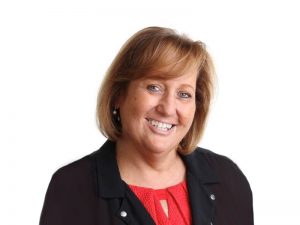Dr. Minori Yoshida’s journey from the tranquil shores of Saipan, Oceania, to the prestigious halls of academia and the competitive arena of the pharmaceutical industry encapsulates a narrative of relentless perseverance, transformative education, and groundbreaking achievements.
Raised on the modest island of Saipan by a Chinese mother and a Japanese father, Yoshida initially had ambitions in the healthcare sector during her formative years working at a community pharmacy. A serendipitous encouragement from a SAT teacher led her to explore opportunities beyond the familiar, culminating in her acceptance at Barnard College—an experience that was as much a financial and cultural upheaval as it was an academic one. Dr. Yoshida’s story is not just about academic prowess; it’s a profound tale of overcoming socioeconomic obstacles, breaking cultural barriers, and reshaping her identity and aspirations in an environment far removed from her small-island roots.
Transitioning to Columbia University’s then-newly coeducational environment, Minori faced unwelcoming attitudes from male peers, stoking in her a fierce determination to succeed against the odds. This spirit carried her through to earning a Doctorate of Pharmacy from Rutgers University. Today, she’s a business analyst with Lifescience Dynamics Limited.
Read our full interview with Dr. Minori Yoshida below.

Coming from the tiny island of Saipan, what were some of the biggest culture shocks and challenges you faced when you first arrived in New York for college?
Dr. Minori Yoshida: Moving to a major city has always been a goal of mine, so I really embraced the major change from Saipan to Manhattan. Being surrounded by diversity is nothing new to me, and is something I value everywhere I go, so I didn’t quite experience a major culture shock.
When I first moved to New York, I had to adjust to the fast-paced lifestyle, navigate the city (and public transit), and find good meals or groceries for a decent price. However, once I got over my anxiety about asking strangers for help, things got a lot easier!
Your journey through academia was incredibly demanding, especially given the financial burden of working multiple jobs while studying. Can you share how you balanced work, studies, and personal life during this time?
Dr. Minori Yoshida: Finding the balance in life is an ongoing challenge for me, but staying organized and being disciplined with my schedule, as well as having the support and encouragement from friends, family, and mentors, really help me manage it all. It was especially important for me to look at my schedule at various time points ahead, whether it was an upcoming exam or a busy period at work so that I could plan ahead and communicate any potential issues before they arose.
It was also important to have stuff to motivate me to move forward, or to fit in things that I enjoy doing amidst the craziness to maintain my happiness and protect my inner peace. So I made sure to account for these aspects when looking at my schedule.
You were among the first women to earn a Doctor of Pharmacy degree from Saipan. What motivated you to pursue this path, and what challenges did you face breaking new ground in this field?
Dr. Minori Yoshida: I had an impactful working experience during high school at one of the only two independent pharmacies on Saipan and I learned that there were other ways to be involved in medicine and patient care without being in direct contact. I really admired the expertise my boss had with medications and the overall healthcare industry, and I hoped to be able to achieve a similar level of knowledge in the future.
It was also quite rewarding to establish relationships with patients and see the difference that the pharmacy made in a patient’s treatment journey – however short or long that may look like. I realized that I wanted to pursue a career that allowed me to continuously learn about medicine and simultaneously make a direct, positive impact on patient health.
The main challenge was being the only student in my university who was pursuing pharmacy as a post-grad opportunity because I had to figure everything out on my own. Since I was working at CVS during undergrad, I was able to ask for and receive tons of advice from all the pharmacists I had met. My faculty advisors were also supportive of my pursuit for pharmacy, and pointed me to relevant opportunities, like research or pre-requisite courses that also satisfied degree requirements. Once I got into pharmacy school, the challenge shifted towards finding opportunities to gain more diverse experiences in the field while also managing an intense curriculum and supporting myself.
Your experience in an all women’s school at Barnard College changed your perspective. Can you elaborate on how this environment influenced your personal and professional growth?
Dr. Minori Yoshida: The Barnard community really empowered me to be the best version of myself that I could be – as a woman, as the first student from Saipan and the first in my whole family to attend this prestigious university, and as the first pre-pharmacy student on campus. I used to think these parts about me were weaknesses because of how alienating they made me feel, but the strength and drive of the incredible women I was surrounded by motivated me to embrace these qualities.
Barnard really taught me to welcome challenges and to be unafraid, because we are all fully capable of handling any situation that we face. Even at times when I was treated differently by other male students (despite us all being under the Columbia University umbrella), I kept reminding myself that I deserved to be where I am just as much as they did. If I felt uncomfortable, I would either speak my mind, and sometimes a conversation is all it takes to get to level ground or channel that energy towards proving my worth.
So, I encourage us to be patient and continue pushing past the discomfort of gender exclusion and discrimination and use it as a driving force to move forward with our goals.
Working as an analyst for Lifescience, you gather data for the largest pharma companies in the world. What is the most rewarding aspect of your job, and what do you love most about your work?
Dr. Minori Yoshida: It’s incredibly rewarding to see the insights we gather spur fruitful discussions with the wider team and contribute to major decisions that these companies make. I really do enjoy being able to learn and assist in the complex process behind bringing medications to patients – both on a regional and global level.
Albeit working in the industry is more business-oriented and the impact on patient care is more broad compared to hospital or community pharmacy, I am very much still exercising and furthering my knowledge base while also positively contributing to the healthcare field.
As a healthcare consultant and health-systems pharmacist, you have a unique insight into both the clinical and business aspects of pharmacy. How do you think this dual perspective benefits your work and the industry as a whole?
Dr. Minori Yoshida: I think a great advantage that any PharmD has is the fact that our academic training provides us with a holistic view of what pharmacists can do in any practice setting, as well as a solid foundation across all major therapy areas. PharmD’s tend to be very flexible in their roles and can develop their subject-matter expertise quickly by building off of what they’ve learned in school.
Additionally, the unique perspective PharmD’s bring considers not only the medication itself but also accounts for the various intricacies underlying the process of getting a drug to a patient that most people overlook or are unaware of.
You encourage others to reach out to you for support, highlighting the importance of community. How have you built your support network, and how has it helped you navigate both personal and professional challenges?
Dr. Minori Yoshida: I enjoy meeting new people and building relationships with them, whether it be through a simple conversation at work, introducing myself at college orientation, joining clubs or organizations, or helping someone with navigating the city. Through all of the different experiences and advice that people have shared with me, I’ve learned how to adapt and grow when faced with any challenge.
Life is difficult as it is, but I believe that providing any kind of support for each other can really make a difference.
Looking ahead, what are some goals or aspirations you have for your career and personal development?
Dr. Minori Yoshida: I love being asked this question but every time I get embarrassed because it exposes so much of my wild ambitions. Earlier I mentioned being interested in pharmacy because of the concept of continuous learning and patient impact, well I also simply love the fluidity of pharmacists to go from one setting to another, and that flexibility is something I fully intend to explore throughout my career.
I want to be able to retire knowing that I got to realize my potential as a pharmacist in different areas – business, law, administration, clinical, and community. I also want to be able to travel and live in different cities, master a few languages, play volleyball more frequently, and re-learn the piano.
Finally, what advice would you give to young women from small communities like Saipan who aspire to pursue a career in STEM or healthcare, especially those facing financial and cultural barriers?
Dr. Minori Yoshida:
- Be patient and fight for what you want / never give up
- Stay true to yourself and your priorities
- Don’t be afraid to ask for help
These three pieces of advice have gotten me through all of my collegiate studies and still remain true as a working professional now. There were so many times when I wanted to drop everything that was on my plate because I was exhausted from balancing it all – but I kept on with the sacrifices because I knew that everything was a key component in advancing myself further toward my goals.
I’ve also been strongly encouraged by people to go in different directions, whether it be in my studies, career, or personal life, but only I have a clear picture of my circumstances and priorities, so I always proceeded with that in mind. In doing so, I’ve furthered my independence and decision-making and minimized the amount of regret I’d potentially have.
Lastly, there is nothing wrong with asking for help, no matter how big or small the ask is. Although the lives we live are our own, I would not be where I am today without all of the assistance and guidance I’ve received from others.
Emily Sprinkle, also known as Emma Loggins, is a designer, marketer, blogger, and speaker. She is the Editor-In-Chief for Women's Business Daily where she pulls from her experience as the CEO and Director of Strategy for Excite Creative Studios, where she specializes in web development, UI/UX design, social media marketing, and overall strategy for her clients.
Emily has also written for CNN, Autotrader, The Guardian, and is also the Editor-In-Chief for the geek lifestyle site FanBolt.com
- Emma Loggins Sprinklehttps://www.womensbusinessdaily.com/author/emma-loggins/
- Emma Loggins Sprinklehttps://www.womensbusinessdaily.com/author/emma-loggins/
- Emma Loggins Sprinklehttps://www.womensbusinessdaily.com/author/emma-loggins/
- Emma Loggins Sprinklehttps://www.womensbusinessdaily.com/author/emma-loggins/







